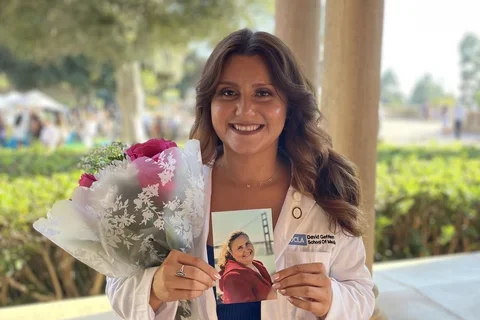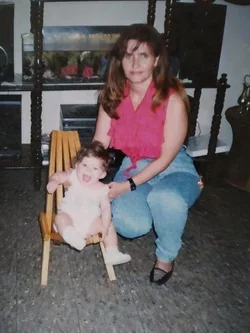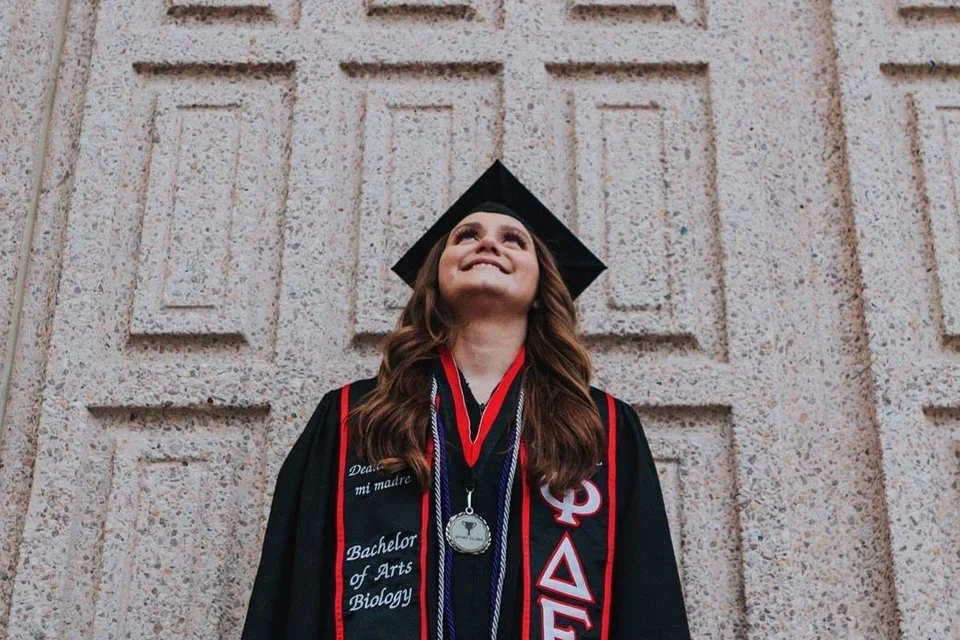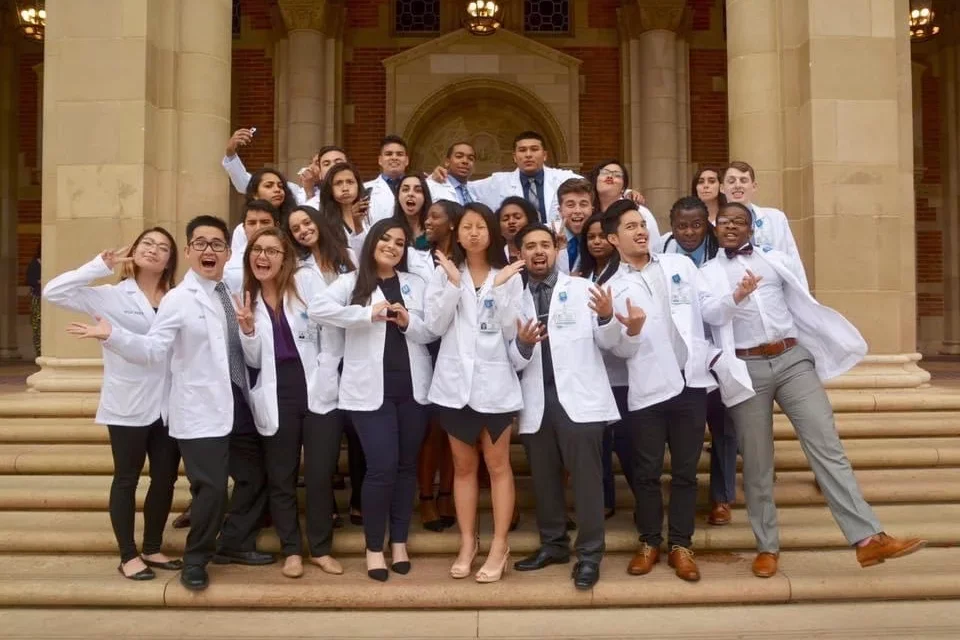Med Student Dreams of Healing Systemic Inequities
Student Spotlight

Meet Maria Tercero Paz
Medical student Maria Tercero Paz moved from her birthplace of Honduras to California’s Bay Area when she was just three years old.
“In high school, I actually learned I was not a United States citizen,” she says. “I didn't have the documentation necessary to even apply to college. I didn’t think I would go at all.”
The California Dream Act changed everything. It granted Maria the opportunity to attend a four-year college, and she seized it.
Maria studied biology at California State University, Northridge. She had ideas about becoming a doctor, but never truly considered it a possibility. She’d never seen any evidence that a Latina woman like her could do something like that.
“For the longest time, I didn't think I could even become a doctor, mainly because I didn't see any physicians who looked like me or who spoke my language.”
A devastating personal loss would soon shatter her concern for what the world suggested she could or could not do.
Fun Fact: Maria loves dancing, especially salsa dancing.
Experiencing loss and finding purpose

Growing up, Maria and her mother relied on the emergency room (ER) when they experienced health issues. This filled in care gaps but didn’t match the benefits of having comprehensive care and coverage—something they couldn’t access as undocumented individuals.
When Maria’s mom noticed abnormal bruises across her body, she turned to a community clinic. Their first available appointment was six months away. They booked it and tried to wait patiently.
During the wait, severe hip pain landed Maria’s mother in the hospital. There, she was officially diagnosed with leukemia, suffered a hemorrhage, and passed away. All this happened within 72 hours of her hospitalization.
“A week later, the community clinic called to confirm her appointment,” Maria says. “I had to tell them it was too late, that she’d already passed.”
The loss shocked and devastated Maria. It also flipped a switch in her head. She found herself growing less concerned whether or not she had evidence she could become a physician. She knew she had to do it, that she would do it—for her mother and for people like her mother.
While processing the loss, Maria’s acute personal pain compounded with the chronic pain she’d felt watching her mother’s struggle with health and the healthcare system.
She felt the effects of structural inequities and the inescapable truth that undocumented individuals experience disproportionately negative outcomes relative to citizens. For undocumented individuals, the regular health checkups others might take for granted are out of reach.
Maria reflected on childhood conversations with friends about healthcare—how she could only dream of benefits they found commonplace. When they mentioned going to a doctor’s appointment, for example, Maria would need a moment to fully process what that meant.
“I remember saying, ‘Wait. What? You don't go to the emergency room when you have a problem?’”
Reflecting about how other people—many other people—had healthcare choices beyond the ER and free clinics solidified her motivation to become a physician. Then she could work on healing the systemic problems she’d observed from the outside from within the system itself.

Applying to medical school
Maria graduated from California State University, Northridge and immersed herself in getting hands-on clinical and research experience to strengthen her medical school applications. She felt more motivated than ever.
However, some of the logistical aspects of her goal continued weighing on her. Participating in UCLA’s Pre-Med Enrichment Program (PREP) soothed her nerves and stoked her excitement.
“I saw medical students who represented the true diversity of the world. It was the first time I saw medical students who looked like me.”
The experience sent Maria a strong message: This could be you. Feeling and seeing the truth of that statement helped her believe in it more fully than ever.
“I was like, ‘Okay. This could be me.’”
This could be me turned into This is me when Maria learned she’d been accepted into the CDU/UCLA Medical Education Program (MEP) offered jointly by the David Geffen School of Medicine at UCLA (DGSOM) and Charles R. Drew University (CDU).

A goal worth every challenge
Participating in pre-med programs helped prepare Maria for life as a medical student. Nevertheless, she encountered plenty of surprises and challenges in her first days.
“You don't know what you're getting yourself into until you're here,” she says.
For Maria, the biggest challenge has been directly facing the specific, human symptoms of the structural inequities she hopes to dismantle. Personally witnessing systemic problems caused her deep pain. Confronting the same problems in patients day after day fills her with a different—but equally deep—variety of pain.
She copes with the pain and the challenges by keeping her long-term purpose in mind and counting on her supportive DGSOM community, including colleagues in her MEP cohort and the Latino Medical Student Association.
Looking further into the future, she’s not yet sure what medical specialty she’d like to practice but feels pulled toward acute care.
“That's familiar to me because that's the first kind of care I knew from visiting the emergency room with my mom.”
Whether she’s choosing a specialty or seeking motivation to tackle a busy day, Maria can always find inspiration in her mother.
Her tragic story underscores the monumental difference healthcare can make in someone’s life. Her memory helps Maria keep the meaning and significance of her goal to bring healthcare access to more people close to her heart.
“I see her in the people I meet. I see her in the patients I see. I see her in the hard-working Latina mothers I talk to,” Maria says. “I know that through the work I'm doing for others, I’m also healing her in a way.”



